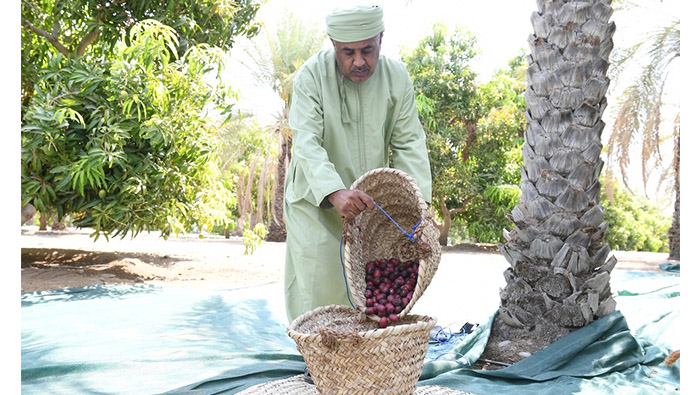
Muscat: The Royal Gardens and Farms of the Royal Court Affairs have successfully conducted an experiment to advance the production of Al Khunaizi date variety for the 2025 season.
This achievement follows multiple trials and monitoring over consecutive seasons using natural methods without chemical intervention, after observing early pollination in certain palm varieties due to inherent genetic traits.
The experiment began by pollinating Al Khunaizi palms in the Wilayat of A’Seeb, selecting the optimal pollination timing and the most suitable pollen type to ensure quality results. The clusters were carefully monitored and maintained, ensuring continuous fruit development, full growth, and the appearance of ripening indicators—culminating in the formation of Tabasheer (early-stage dates) by early April, approximately 3 to 4 months ahead of the usual harvest period.
These efforts resulted in a successful harvest, with multi-season monitoring confirming the feasibility of consistently obtaining early dates without any negative impact on the palm’s seasonal productivity.
The experiment aimed to transform Al Khunaizi variety from a mid-season to a premium early-season crop, producing exceptionally early Tabasheer—the first of its kind in Oman and the Gulf region. This enhances future economic viability by marketing a premium variety at an ideal time while ensuring 100% natural Tabasheer at all ripening stages.
Eng. Madlen Said Al Mahrouqi, Director of A’Seeb Gardens Services Department, stated: “This experiment was based on prior knowledge of the genetic characteristics of certain palm varieties, which demonstrated a unique ability to produce pollen twice a year, suggesting possible genetic or environmental factors stimulating this phenomenon."
She added that the best pollination timing was selected to ensure the experiment’s success, along with high-quality pollen to boost production yields with premium-grade fruit.